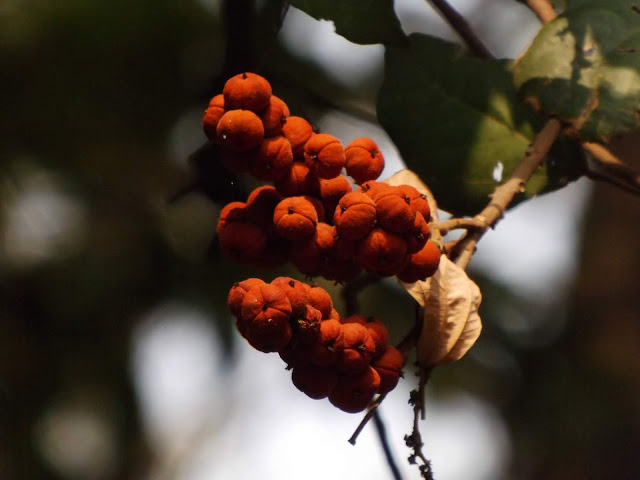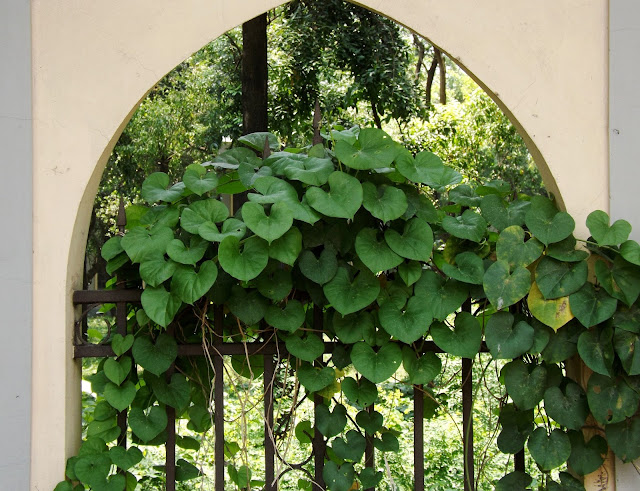Kamela or Monkey-face tree, Mallotus philippensis
Kamela or Monkey-face tree (Mallotus philippensis, family: Euphorbiaceae) is a small-sized tree, usually 8-12 m in height. The bark of the evergreen tree is grey, smooth and wrinkled. Young shoot, leaves and inflorescence are covered with rust-colored hair. The tree is found everywhere in Bangladesh. It is also found in South and Southeast Asia.
Other names: Shinduri, Kamala, Kapila, Komolaguli.
Flowers are small, reddish brown, borne on spike inflorescence. Male and female flowers bloom on separate inflorescences.
Fruit is a capsule, globose, having three lobes, covered with red powdery substance, almost 1 cm in diameter. Seeds are blackish, subglobose.
Flowers and fruits are found almost throughout the year. The tree is propagated by seeds. The powder collected from fruit is used in killing intestinal worm. Red color is collected from fruits, roots and flowers and it is used to dye cloth.
Bark is a source of tannin. Wood is used as fuel. Match-boxes can be made from it.








Where can I get it's tree in Dhaka? Please reply
ReplyDeleteThe tree is not available in wild in Dhaka but available at Botanical Garden, Mirpur.
ReplyDeletePerfect Photography with flowers images. Why it's called Monkey faced tree?
ReplyDeleteনা কামালার ফলের চেহারা লাল-গোলাপী, যা দেখতে বানরের লাল মুখের মতো। যেমন ইংরেজদের গালি দেয়া হতো লালমুখো বাদর বলে। আর কনক চাঁপার বীজাধারে ২-৬ টার মতো কাল বীজ থাকে। যে বীজাধারে ৩ টা বীজ থাকে, তা তুলে ফেললে, ঠিক মিকিমাউসের মুখের মতো লাগে। আমার পোষ্ট ও ছবি আছে অন্য গ্রুপে। আবার দিবো। ধন্যবাদ আপনাকে।
ReplyDelete